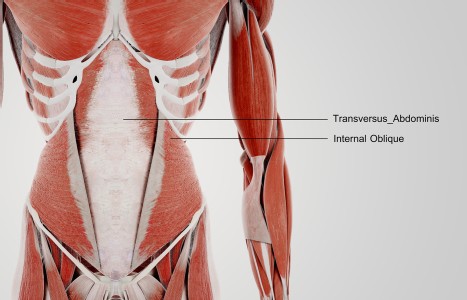TrA-2, my primary needle location, I needle 95% of the time and I think it works the best. You’ll know you have the right point location when you discover the muscle twitching when applying electric stimulation.
Expanding Access for All
This May, I attended the annual meeting of the Acupuncture and Oriental Medicine Alliance in San Francisco. Congratulations to Tierney Tully, the Alliance's new executive director, and the rest of the organization for holding such a great conference. I also want to say thanks to Barbara Mitchell, the previous executive director, for all the work she has done to move this profession forward. We wish Barbara the best in her future endeavors.
At the Alliance meeting, I participated in an ethics panel along with Sherman Cohn, Ann Bailey and Michael Gaeta. We discussed several ethical issues facing the profession. Participating in the panel reminded me that every day, there is some new development in the world of acupuncture and Oriental medicine, and with every development comes a new ethical challenge for us to face.
One of those challenges concerns the new acupuncture laws that are being drafted and debated in the U.S. California, Florida, Rhode Island, Wisconsin and Pennsylvania are just a few of the states striving to pass new legislation governing acupuncture and Oriental medicine. Ethically, many of these new laws make sense, as they attempt to provide more structure for the profession and ensure public safety. Yet, there continue to be forces within our own profession who attempt to have these laws amended or even withdrawn, seemingly for nothing more than personal gain.
Sometimes, it seems as if Abraham Lincoln's quote that "A house divided against itself cannot stand" describes our profession's plight today just as well as it described the situation that gripped the country nearly 150 years ago.
Yet the legislative process does appear to make progress each year. One bill making its way through the California legislature is Senate Bill 573, which was introduced by Senator John Burton of San Francisco. The bill would require every health care service plan to provide acupuncture coverage, and to include acupuncture as a reimbursable service. Should this bill become law, it would mean that all patients with health insurance in California would have coverage for acupuncture services, including HMOs covered under the Knox-Keene Act.
The bill has picked up considerable support as it has made its way through the legislature. The National Guild of Acupuncture and Oriental Medicine has been working to gather support for the bill. The American Federation of Government Employees Local 2391, which represents employees of the Department of Labor in the western United States, Hawaii and U.S. territories in the Pacific Rim, is in support of the bill. The Sailors Union of the Pacific, one of the largest maritime unions in the world, supports SB 573. So does the San Francisco Labor Council and the Board of Supervisors of the City and County of San Francisco, which passed a resolution showing their support for the bill in May.
What do all of these groups have in common? For one thing, they are interested in obtaining acupuncture coverage for their members. Unions are the largest purchasers of health insurance policies in the country. Collectively, unions purchase approximately 54 million health policies a year. They can have a tremendous influence on what therapies are included in a health care plan.
Granted, many union members already see an acupuncturist or doctor of Oriental medicine for care, but think of all the people who haven't tried acupuncture because their health policy doesn't cover it, or because they can't afford to pay for treatment out-of-pocket. Now think of all the people that would be affected by the passage of SB 573. We're talking about hundreds of thousands, perhaps millions, of Californians who would suddenly have access to acupuncture.
Most of you who don't practice in California are probably asking yourself, "What does this have to do with me? It's not going to change the way I practice or affect the number of patients I see." Actually, it will change your practice sooner or later, and here's why.
California is something of a trendsetter for acupuncture. It has more licensed acupuncturists than any other state in the U.S. - more than the next two states combined, in fact. It also has more acupuncture students and suppliers than any other state by a wide margin. If it happens in California, it's bound to happen in your state as well. To paraphrase a line from the movie Casablanca, SB 573 may not affect you today, and it may not affect you tomorrow, but it will soon, and for the rest of your life.
But California isn't the only place acupuncture is practice, and SB 573 isn't the only bill related to our profession that has been introduced this year. This bill is just one of several new laws that are being proposed or have already been signed into law across the country. Among the more interesting pieces of legislation:
- In New York, the podiatric and chiropractic professions are attempting to have legislation passed that would allow chiropractors and podiatrists to practice acupuncture after only 300 hours of training. If the podiatric bill passes, it will proceed to Governor Pataki, who must sign it into law or veto it. Another bill introduced earlier this year would limit the use of lasers by health care providers to medical doctors, dentists, podiatrists and veterinarians.
- In Pennsylvania, Governor Mark Schweiker recently signed Senate Bill 1007. The bill extends the practice of acupuncture to include traditional and modern Oriental therapeutics; heat therapy; moxibustion; electrical and low-level laser stimulation; acupressure and other forms of massage; herbal therapy; and counseling for the use of therapeutic foods and supplements. It also requires the state's Department of Education to approve all acupuncture educational programs in Pennsylvania. (Look for an expanded review of Senate Bill 1007 in the August issue of Acupuncture Today.)
- In Rhode Island, a new bill (H 7792) has been introduced by Representative Nancy C. Hetherington. Currently, to be a licensed acupuncturist in Rhode Island, a practitioner must have graduated from a program approved by the Accreditation Commission of Acupuncture and Oriental Medicine. H 7792 would gradually increase the program curriculum training requirements for licensure above the number of hours currently taught at most ACAOM-accredited schools, from 2,900 hours in 2002 up to 4,000 hours by 2008.
How can you find out what's happening legislatively in your state? There are several avenues available. Register to vote. Visit your state's website and look to see what bills are on this year's legislative calendar. Join a state or local association to learn more about your scope of practice (you might be surprised what you can and cannot practice, depending on your state) and any new laws that may impact your practice. Taking these few steps will make you more informed and politically active, so that you will know when bills like SB 573 (and the others mentioned above) are being introduced and you can take the proper steps to protect the practice of acupuncture in your state.


